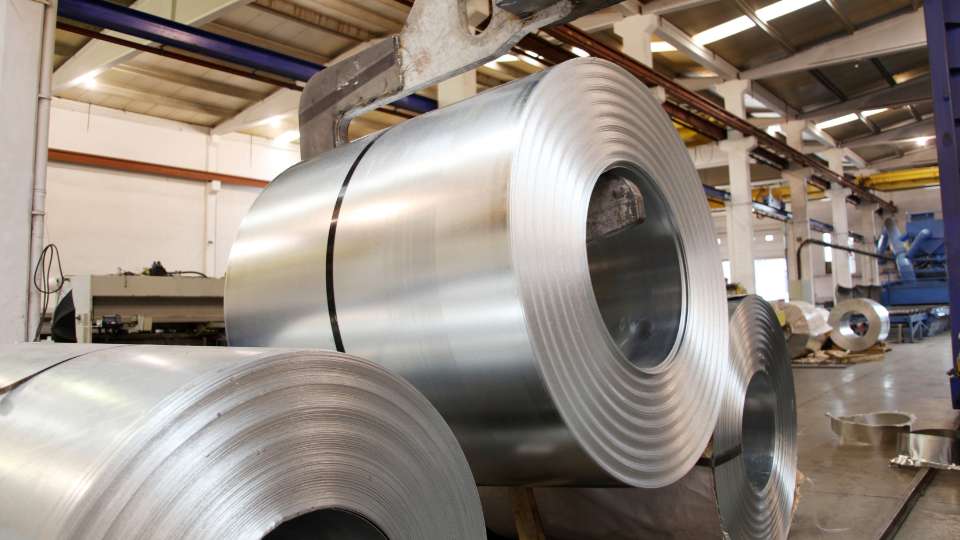On Friday, April 12, both the U.S. and UK governments announced new sanctions that prohibited the London Metal Exchange (LME) and Chicago Mercantile Exchange (CME) from accepting deliveries of Russian metal produced after that date. The LME promptly updated its rules on April 13 to suspend the acceptance of new Russian metal deliveries.
The ban is expected to significantly affect the market, given that nearly two-thirds of copper content and 36% of nickel in LME warehouses originate from Russia.
Impact on Nickel and Aluminum Trading
Industry analysts suggest that these sanctions on Russian metals are likely to increase prices now that they cannot be traded on the LME platform. The impact will be particularly felt on LME nickel and aluminum prices.
Harry Knott, Chief Business Architect at Quor, noted that market participants are increasingly avoiding Russian metal voluntarily, and there is growing scrutiny over the origin of materials, which could gain momentum over time.
The recent sanctions package aims to impact Russia’s export revenue from sectors that contribute to 5.5% of global aluminum supply, 4.0% of copper supply, and 6.0% of nickel supply. Metal produced after April 12 is theoretically expected to trade at a discount to the London Metal Exchange (LME) price because it can no longer be delivered.
Extended Metal Storage
With metal inventory being more likely to remains in storage facilities for extended periods due to the sanctions, warehouse operators stand to benefit greatly. The longer metal stays stored, the more revenue the warehouse generates. When metal is re-warranted or replaced with off-market metal, those involved can share in this storage revenue through arrangements known as “ever-green rent arrangements.”
These arrangements split future storage income between the warehouse and the entity delivering the metal, making them attractive tools for warehousers to attract metal to their storage spaces. They are designed to be cash-flow neutral, enabling smaller players to compete with larger operators who might offer cash incentives to remove metal from the physical supply chain.
However, these arrangements have been a contentious issue for years, leading to frequent movement of metal stocks between warehouses as new owners seek to free themselves from these rental share agreements with the original deliverer of the metal.

Aluminum Market Dynamics for Q3
Aluminum has historically been at the center of storage controversies on the London Metal Exchange (LME). It is the largest market among all base metals traded on the LME and often experiences periods with substantial inventories.
A notable episode occurred around a decade ago when aluminum created significant challenges for the LME due to long load-out queues from warehouses in Detroit, which disrupted market dynamics.
Now, aluminum is poised to create further disruption as warehouse operators and traders seek to capitalize on the recent split of Russian warrants. This split categorizes older Russian aluminum production into two types of LME warrants, with Type I warrants now freely circulating and eligible for physical delivery.
This situation suggests that there could be strategic moves by warehousers and traders to leverage these warrant types to potentially influence market conditions or take advantage of arbitrage opportunities. As a result, aluminum may once again become a focal point of market volatility and strategic maneuvers on the LME.
ANZ Research reports that global alumina supply losses have exceeded 2 million tonnes so far this year. This shortfall is anticipated to contribute to another year of market deficit, estimated at 470,000 tonnes in 2024. Although supply constraints are projected to ease in the second half of 2024 and into 2025, the market is expected to remain undersupplied. This persistent undersupply is likely to keep alumina prices elevated. Notably, alumina represents 25-30% of the total production cost of aluminum.
Therefore, despite potential easing of supply tightness in the medium term, the aluminum market is anticipated to remain supported by ongoing geopolitical uncertainties impacting Russian production and the underlying strength in demand.
Start Trading with Orient Futures Singapore
Being an Overseas Intermediary of Shanghai International Energy Exchange (INE), Dalian Commodity Exchange (DCE), and Zhengzhou Commodity Exchange (ZCE), when foreign clients participate in internationalised futures contracts in these Chinese markets with us, they have direct access to trading, clearing, and settlement. Our parent company, Shanghai Orient Futures, is the largest broker in terms of aggregated volume across the five regulated exchanges in China.
Orient Futures Singapore also currently holds memberships at the Singapore Exchange (SGX), Asia Pacific Exchange (APEX), and ICE Futures Singapore (ICE SG). Starting August 2023, corporate clients can also gain access to the B3 Exchange through us, opening additional trading avenues.
Expect streamlined processes and an easy-to-use interface designed for minimal latency, accompanied by our team’s round-the-clock availability on trading days to provide assistance for all your trading needs.




